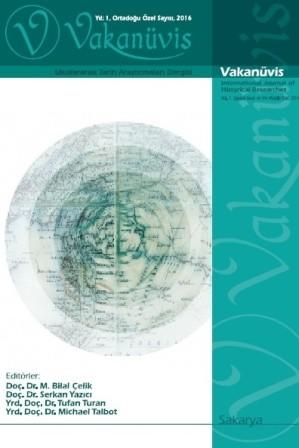Bolşevik İhtilali’nin İran’daki Yansımaları
Reflections of the Bolshevik Revolution on Iran
Author(s): Kamuran KarabalıkSubject(s): Economic history, Military history, Political history, Social history, 19th Century, Pre-WW I & WW I (1900 -1919)
Published by: Serkan YAZICI
Keywords: Russians; Iran; First World War; Bolshevik Revolution; Treaty of Brest-Litovsk;
Summary/Abstract: The economic burden arising from the First World War brought about a surge in internal disturbances in Russia in 1917. Starting as grassroots movements, the incidents transformed into a great revolution with the cooperation of the Bolsheviks and Mensheviks. Even though the repercussions of the revolution were welcomed by Iran, which had been under Russian dominance since the 19th century, the enthusiasm did not last long with the bellicist stance of the newly-established Provisional Government. Being anti-war, unlike the Provisional Government, the Bolsheviks staged a coup in October 1917 to seize power. The purpose of the Bolsheviks was to end the war in order to establish a “democratic” peace without “annexations or reparations”. Upon the request of the Bolsheviks, the peace negotiations between the Central Powers and Russia were initiated on 22 December 1917. One of the significant matters discussed during these negotiations was Iran. The Russians stated during these negotiations that they would relinquish the political, military and commercial privileges they had established on Iran since the 19th century. The negotiations between the parties were concluded with the Treaty of Brest-Litovsk signed on 3 March 1918. The treaty ended Russian dominance over Iran while requiring Russia and the Ottoman Empire to withdraw their troops from Iran. However, desirous of filling the power gap in Iran resulting from the withdrawal of Russian troops; the British, the Armenians and the Nestorians took action. This complicated the turmoil in the region even further. The purpose of the present study is to examine how the Russian dominance on Iran, starting from the 19th century and becoming even stronger during the First World War, ended with the Bolshevik Revolution based on historical sources.
Journal: Vakanüvis- Uluslararası Tarih Araştırmaları Dergisi
- Issue Year: 6/2021
- Issue No: 2
- Page Range: 661-688
- Page Count: 28
- Language: Turkish

